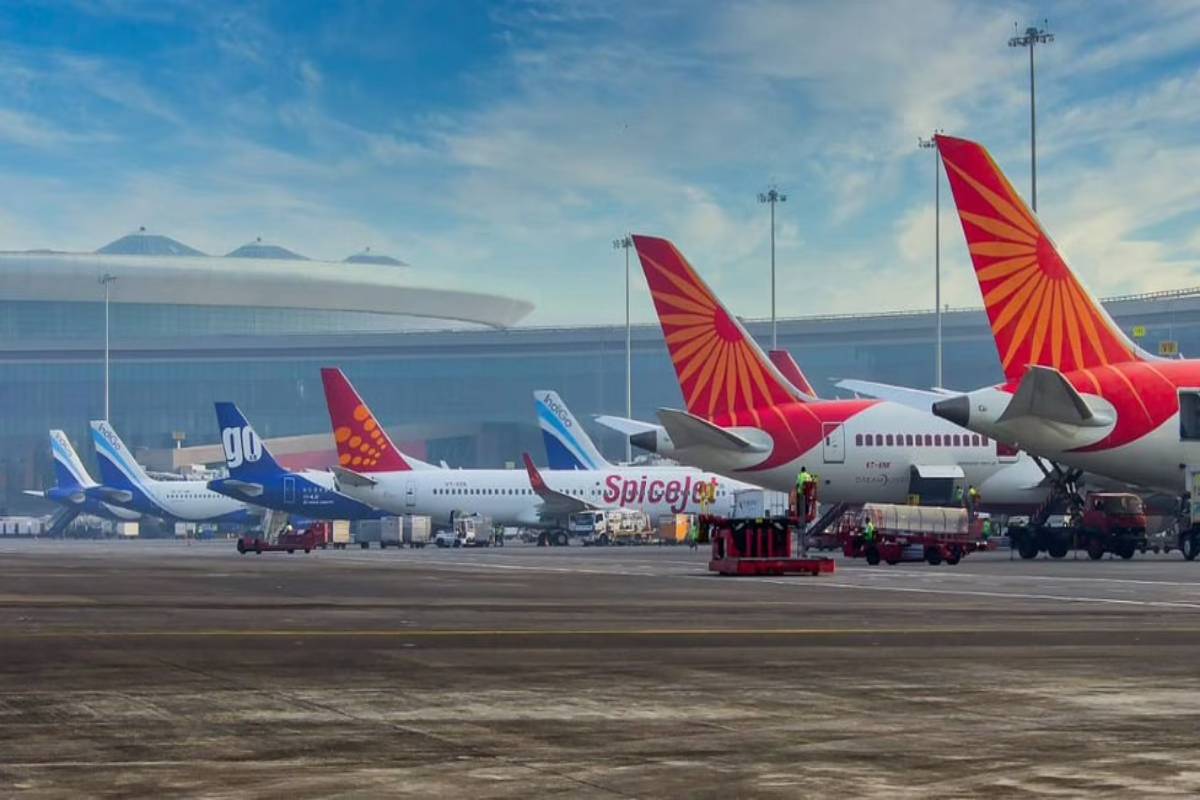Inescapable Crisis: Lessors Request DGCA To De-Register 54 Aircraft As Airline Receives Green Signal

Inescapable Crisis: Lessors Request DGCA To De-Register 54 Aircraft As Airline Receives Green Signal
In a significant development for the aviation industry, the national Directorate General of Civil Aviation (DGCA) has granted its approval for a beleaguered airline’s operations to resume after a prolonged period of uncertainty and financial instability. The decision comes after a series of tumultuous events that saw the airline facing a severe crisis and teetering on the brink of collapse.

In a bid to recover from the crisis and rebuild its operations, the airline had sought approval from the DGCA, demonstrating its commitment to address the concerns raised by stakeholders and regulatory authorities. The regulatory nod brings a ray of hope for the airline, its employees, and thousands of passengers who were left stranded during the turbulent phase.
However, amid the positive news, a new challenge has surfaced for the airline, as lessors holding leases for 54 aircraft have formally requested the DGCA to de-register these planes. The lessors’ move stems from growing apprehensions about the airline’s ability to fulfill its contractual obligations, citing payment defaults and concerns over the safety and maintenance of the aircraft in question.
The airline‘s management has acknowledged the lessors’ concerns and is actively engaged in discussions to find an amicable resolution. In response to the lessors’ request, the airline has vowed to address the financial aspects and provide the necessary reassurances regarding safety and maintenance protocols. Negotiations are expected to be tense and protracted, given the substantial financial stakes and complex legal ramifications involved.

The crisis that led to this tumultuous situation began months ago when the airline’s financial troubles became public knowledge. Rising operational costs, competitive pressures, and a slump in passenger numbers due to the pandemic had already dealt a severe blow to the company’s bottom line. As losses mounted, the airline faced difficulties in servicing its debt, leading to payment defaults and souring relationships with creditors and lessors.
In a desperate attempt to stay afloat, the airline underwent a major restructuring process, which involved layoffs, route optimizations, and cost-cutting measures. Despite these efforts, the company struggled to secure fresh capital infusion, as potential investors remained wary of the airline’s ability to recover from the crisis. The mounting uncertainty further exacerbated the lessors’ concerns, prompting them to seek de-registration of their leased aircraft.

The DGCA’s recent decision to allow the airline to resume operations marks a pivotal moment in its struggle for survival. The regulatory body has imposed strict conditions for the airline to comply with in order to maintain its air operator certificate (AOC). These conditions include regular financial reporting, adhering to safety protocols, and fulfilling lease agreements without further defaults. Any failure to meet these requirements could result in the immediate suspension of the AOC, dealing a death blow to the already precarious situation.
Industry experts and analysts are closely monitoring the developments surrounding the airline. They believe that while the DGCA’s approval brings a glimmer of hope, the road to recovery will be arduous and fraught with challenges. Rebuilding trust with lessors and regaining investor confidence will be key in securing the necessary financial lifeline to keep the airline’s operations running smoothly.
Meanwhile, the airline’s management is making concerted efforts to engage with all stakeholders and chart a sustainable path forward. They have expressed regret over the past missteps and are determined to turn the company around through stringent financial management, improved customer service, and a renewed focus on operational efficiency.
For the passengers who have been loyal to the airline, this tumultuous journey has been nothing short of distressing. The uncertainty surrounding flight schedules, cancellations, and delays have taken a toll on their confidence in the airline. As operations resume, regaining customer trust and loyalty will be paramount to rebuilding the airline’s brand image and securing a steady stream of revenue.
The unfolding crisis has wider implications for the aviation industry as well. The DGCA’s response to the lessors’ request for de-registration will set a precedent for how similar situations are dealt with in the future. It will underscore the importance of robust regulatory oversight to ensure the safety and financial stability of airlines operating in the country.

In conclusion, the airline’s journey through this crisis has been a rollercoaster ride of challenges and setbacks. The DGCA’s green signal to resume operations marks a turning point, but the road to recovery will be fraught with obstacles. The lessors’ request for de-registration of 54 aircraft presents a fresh hurdle that demands careful negotiation and resolution. As the airline fights for survival, the spotlight is on its management to demonstrate effective leadership, financial prudence, and a steadfast commitment to safety. Only time will tell if the airline can weather the storm and emerge stronger on the other side of this unprecedented turmoil.




